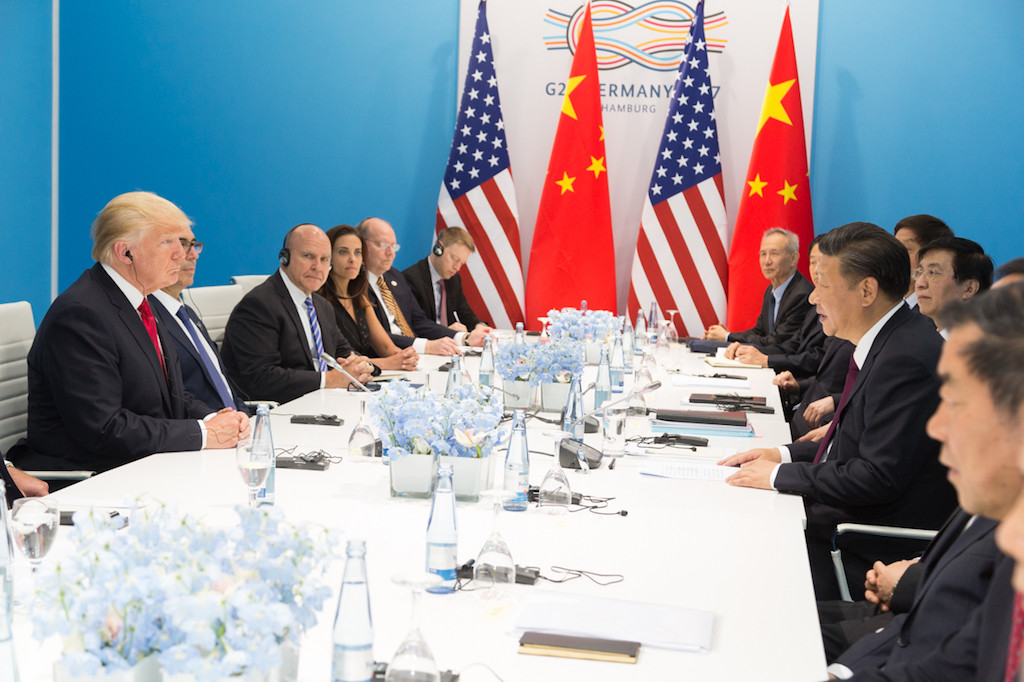Trump ups tariff war
US president Donald Trump on Tuesday vowed to impose a 25 per cent import tariff on 1,333 Chinese products, worth a total of around $50 billion annually. Reuters, the Financial Times and The Guardian are among the media reporting on the latest round in the trade war between the US and China. The list of goods that will be affected has yet to be finalised but looks set to include products benefitting from the “Made in China 2025” label such as industrial robotics and aircraft parts. The US administration says the tariffs are retaliation for what it calls decades of state-backed intellectual property theft by China. In an initial statement, the Chinese commerce ministry said it had “the confidence and ability to respond to any US trade protectionist measures.”
Second wolf sighting confirmed
The ministry of sustainable development has confirmed that a sheep found dead on 26 February in a field near Fouhren was attacked by a wolf. Initial analysis at a German laboratory of the bite wounds were inconclusive, but the wolf attack was corroborated by experts from France, Poland and Spain. This is the second proof of the presence of wolves in Luxembourg within a few months. Local residents will be able to hear more about the wolf at an information meeting on 19 April at 7.30 p.m. in the salle des fêtes in Brandenburg.
UK lab can’t verify source of Skripal poison
The Porton Down defence laboratory that has been analysing the novichok used to poison Sergei and Yulia Skripal says it has “not verified the precise source” of the nerve agent. The news reported by The Guardian and a slew of media contradicts a statement by UK foreign minister Boris Johnson who said two weeks ago that Porton Down “were absolutely categorical” that the nerve agent originated from Russia. But the Defence Science and Technology Laboratory’s chief executive Gary Aitkenhead also denied Russian suggestions that it could have been the source of the poison. “There’s no way that anything like that would ever have come from us or leave the four walls of our facilities,” he said. The UK government was quick to apportion blame for the attack on Russia, and many western allies agreed with its analysis. Aitkenhead says that the government used its evidence as one of “a number of other sources to piece together the conclusions that they have come to.” The Russian embassy in London said that Aitkenhead’s statement proved that “all political declarations on the Russian origin of the crime are nothing but assumptions.”
Facebook won’t apply GDPR guidelines outside EU
Mark Zuckerberg has told Reuters in an interview that Facebook had no immediate plans to apply the EU’s General Data Protection Regulation in its entirety to the rest of the world. GDPR comes into force on 25 May, and Facebook will have to comply on data moved inside and transferred to the European Union. Reuters reports that Zuckerberg, who has been under fire over Facebook’s massive leak of data to Cambridge Analytica, said that the company already complies with many parts of GDPR. However, he said it reserves the right to “make exceptions” when extending the spirit of GDPR regulations to the rest of the world.
EU pledges help for Yemen
The European Union has pledged €107.5 million, including €37 million in emergency humanitarian assistance, to help civilians most in need in Yemen. The country descended into widespread armed conflict in 2015 and since then the EU has funded some €438.2 million in various forms of aid. Commissioner for International Cooperation and Development, Neven Mimica said the EU would “support vulnerable communities and the internally displaced in particular, equipping them with sustainable livelihood tools to weather the current crisis.”
Today’s breakfast briefing was written by Duncan Roberts
Reading this by email? You received today’s breakfast briefing because you signed up to receive Delano newsletters. Manage your subscription options here.
